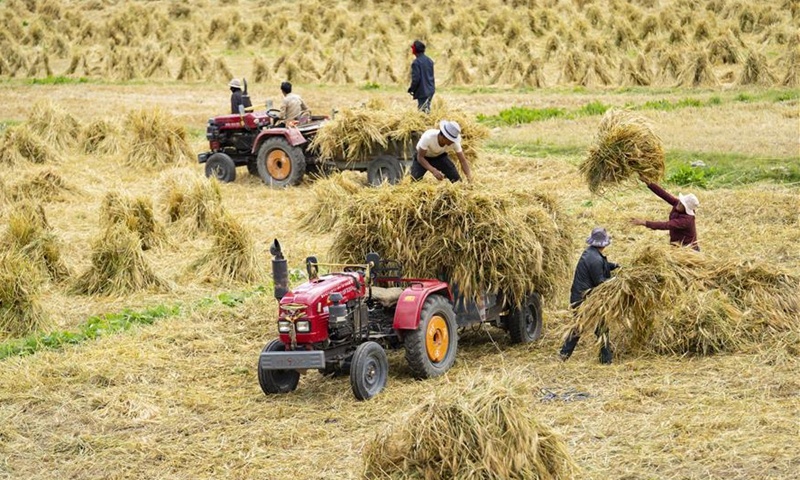
Photo: Xinhua
The World Trade Organization (WTO) on Monday confirmed on its website Australia had officially lodged a complaint against China over anti-dumping and anti-subsidy duties imposed on its barley exports.
Since China imposed an 80.5 percent tariff on Australia's barley in May, Canberra has been playing up a card of so-called "economic coercion" from China, flaring up bilateral tensions and exacerbating market jitters over their trade and investment.
Australia is one of the earliest imposing very discriminatory bans on 5G equipment produced by Huawei and ZTE that runs counter to WTO rules. By following the heels of the Trump administration, Canberra has repeatedly used the pretense of protecting national security to decimate many bilateral cooperation deals.
And, the WTO is not a stage for any political stunt, but a place where rules and evidence speak.
China is confident any ruling will be made in its favor and has sufficient evidence and data to prove that the anti-dumping and anti-subsidy duties on Aussie barley were based on an 18-month investigation, which was carried out in accordance with the appropriate rules and guidelines. According to an investigation by the China Chamber of International Commerce, China's barley imports from Australia surged by 67 percent in terms of volume from 2014 to 2017, while the import price sank 26.54 percent during the period.
This dumping move by Australia has caused heavy losses for China's barley farmers. In this sense, Australia is the party that has breached the WTO rules.
Australia, which has described itself as a "victim" of Chinese retaliation, has actually acted recklessly in adopting discriminatory practices targeting Chinese companies in recent years. A dozen of Chinese investment projects in the fields of infrastructure, agriculture and animal husbandry have been blocked by Canberra. Australia has also launched 106 anti-dumping and anti-subsidy investigations against Chinese products, while China only initiated four against Australia.
Australia is not as innocent as it claims to be, and the international community should be made fully aware of its bad faith and double-standards, playing the role of a top accomplice of the Trump administration to impede China's economic rise. Its geopolitical grievances have cast growing doubt over bilateral trade.
Looking back at the breakdown of China-Australia relations, it is clear that Canberra went out of its way to intentionally clobber China's legitimate interests and damage an otherwise friendly partnership. Now it's time for Canberra to think the deadlock seriously and rectify its foreign policy toward China.


